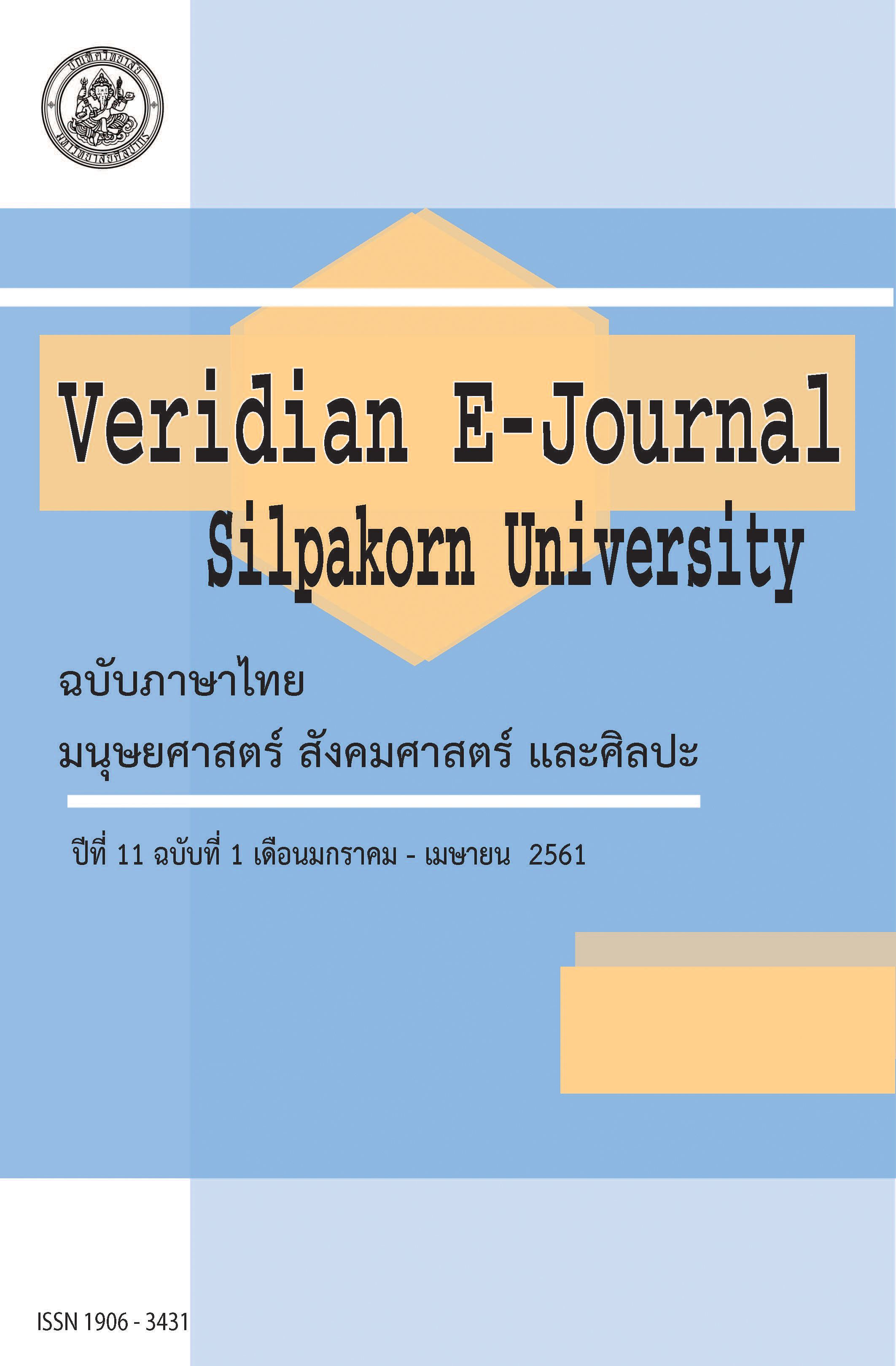การเข้าร่วมความตกลงหุ้นส่วนยุทธศาสตร์เศรษฐกิจเอเชีย-แปซิฟิก (TPP) ของญี่ปุ่น กับโครงสร้างอำนาจใหม่ในเอเชีย-แปซิฟิก (Japan’s participation in Trans-Pacific Partnership Agreement (TPP) with the new power configuration in Asia-Pacific)
Main Article Content
Abstract
บทความนี้มีวัตถุประสงค์เพื่อวิเคราะห์การเข้าร่วมความตกลงหุ้นส่วนยุทธศาสตร์เศรษฐกิจเอเชีย – แปซิฟิก (TPP) ของญี่ปุ่น ผ่านแนวคิดการคานอำนาจ (Balance of Power)โดยให้ความสำคัญกับการถ่วงดุลจากภายนอก (external balancing) ผ่านการแสวงหาพันธมิตรหรือความร่วมมือจากรัฐอื่นๆเพื่อป้องปรามรัฐที่เป็นภัยคุกคามซึ่งผลการศึกษาพบว่า การเข้าร่วมความตกลง TPPของญี่ปุ่นนับได้ว่าเป็นการตอบสนองต่อโครงสร้างอำนาจใหม่ในภูมิภาคเอเชีย – แปซิฟิกที่มีการเปลี่ยนแปลงไปจากเดิม นั่นคือ การทะยานขึ้นมาของจีนจากการพัฒนาทางเศรษฐกิจอย่างก้าวกระโดด ส่งผลให้จีนมีอำนาจทางการเมืองระหว่างประเทศเพิ่มมากขึ้นอย่างเห็นได้ชัดทั้งด้านเศรษฐกิจ การทหาร และการพัฒนาเทคโนโลยี นอกจากนี้การแสดงท่าทีแข็งกร้าวของจีนต่อประเทศคู่กรณีที่มีความขัดแย้งกันในบริเวณทะเลจีนตะวันออกและทะเลจีนใต้ได้สร้างความกังวลให้กับประเทศเพื่อนบ้านในภูมิภาค และประเทศอื่นๆ ในระดับโลกจีนจึงถูกมองว่าเป็นภัยคุกคามความมั่นคงของญี่ปุ่นและภูมิภาคเอเชีย -แปซิฟิก ดังนั้นแล้วการกระชับความสัมพันธ์กับพันธมิตรหลักอย่างสหรัฐอเมริกาของญี่ปุ่นผ่านการเข้าร่วม TPP ถือได้ว่าเป็นการป้องปรามการขยายอิทธิพลของจีนเพื่อรักษาดุลอำนาจในภูมิภาคเอเชีย – แปซิฟิก ให้มีเสถียรภาพต่อไป
This article aims to analyze Japan's participation in the Trans-Pacific Strategic Economic Partnership (TPP) agreement through its Balance of Power initiative, with an emphasis on external balancing through the pursuit of partnerships. The results showed that Japan’s participation in the TPP agreement has been a response to the new power configuration in the Asia-Pacific region. The rise of China's economic development by leaps and bounds. As a result, China's international political power increasingly obvious economic, military and technological development. In addition, China's harsh stance on conflicting parties in the East China Sea and the South China Sea has raised concerns among its neighbors in the region and other countries on a global. China was viewed as a threat to the security of Japan and the Asia - Pacific region. Thus, strengthening ties with Japan's major US allies through participation in the TPP can be considered as a deterrent to Chinese influence to maintain the balance of power in the Asia - Pacific region to stabilize further.

